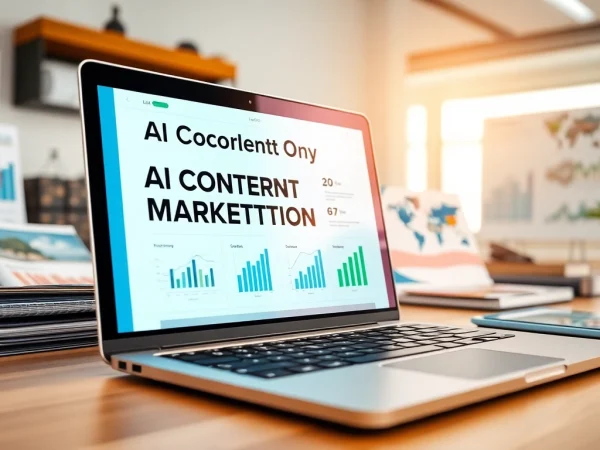Streamlined Rental Property Management: Strategies for Maximizing Your Investment
Understanding Rental Property Management
What is Rental Property Management?
Rental property management involves the operation, control, and oversight of real estate property, often on behalf of the property owner. Effective management encompasses a broad variety of tasks from tenant sourcing to maintenance, ensuring the landlord’s investment is protected and optimized. In essence, rental property managers specialize in maximizing the value of residential or commercial property by handling various responsibilities involving tenant relations, leasing, and property upkeep.
The Importance of Professional Management
For many landlords, the complexities of managing a property can be overwhelming, especially when balancing full-time jobs and personal life. That’s where professional rental property management becomes essential. Engaging a rental property management service can significantly alleviate the burden on landlords, providing expertise and resources that enhance the rental experience for both landlords and tenants. Additionally, professional managers often have access to a network of providers and vendors, assuring timely and cost-effective solutions to any issue that may arise.
Key Services Provided in Property Management
When it comes to property management, several services are generally offered, aimed at fulfilling the needs of both landlords and tenants. These services typically include:
- Advertising and Marketing: Effective marketing strategies ensure maximum visibility for rental listings, utilizing online platforms and social media to attract potential tenants.
- Tenant Screening: Comprehensive screening processes help identify reliable tenants by performing background checks, credit evaluations, and rental history assessments.
- Lease Administration: Facilitating the legal aspects of rental agreements, including drafting leases and ensuring all terms comply with the law.
- Rent Collection: Efficient systems for collecting rent on time and managing late payments or delinquencies.
- Maintenance and Repairs: Handling routine inspections, urgent repairs, and general maintenance to keep properties in excellent condition.
- Financial Management: Providing detailed financial reports for property owners, including income and expense tracking.
Essential Components of Effective Management
Tenant Screening Best Practices
Tenant screening is a critical first step in rental property management. Implementing thorough best practices can significantly reduce issues related to unreliable tenants:
- Application Forms: Utilize detailed rental applications that capture essential information about the prospective tenant’s history, employment, and financial status.
- Background Checks: Conduct credit checks, criminal background checks, and eviction history searches to gain a comprehensive picture of the applicant’s reliability.
- Income Verification: Request pay stubs or tax returns to validate that renters have a stable income sufficient to cover rent payments.
- Reference Checks: Contact previous landlords to gain insights into the applicant’s renting history and behavior as a tenant.
Setting Competitive Rental Prices
Setting the right rental price is vital for maximizing occupancy rates and rental income. Landlords must consider several factors:
- Market Analysis: Analyze comparable properties in the locality, studying their rental rates to establish a competitive price point.
- Property Condition: Factor in the condition and amenities of the property, ensuring that the rental price reflects its market value.
- Seasonality: Seasonality can impact rental prices, especially in tourist-heavy areas like Phuket, where demand fluctuates with the seasons.
- Incentives: Sometimes, offers like discounted first months’ rent can help attract tenants without resulting in long-term price reductions.
Legal Aspects of Rental Property Management
Understanding the legal environment is crucial for landlords and property managers alike. Key legal aspects include:
- Rental Agreements: Crafting comprehensive lease agreements that outline rules, responsibilities, and rights for both parties to avoid legal complications later.
- Fair Housing Laws: Familiarity with federal, state, and local fair housing laws is necessary to prevent discrimination during tenant selection.
- Security Deposits: Understanding regulations regarding collection, use, and return of security deposits, as mismanagement can lead to disputes and legal issues.
- Eviction Processes: Knowing the lawful steps required to evict a tenant helps mitigate potentially lengthy legal battles.
Maximizing ROI through Efficient Practices
Maintenance and Repair Strategies
Effective maintenance strategies are essential to preserving property value and ensuring tenant satisfaction:
- Regular Inspections: Schedule routine property inspections to identify and address maintenance issues before they escalate.
- Responsive Repairs: Establish a system for timely responses to repair requests to maintain tenant satisfaction and retention.
- Preventive Maintenance: Implement a preventive maintenance plan that includes seasonal checks and routine services to avoid costly emergency repairs.
- Vendor Relationships: Build strong relationships with reliable contractors and vendors to ensure competitive pricing and expedite repairs.
Utilizing Technology for Property Management
Technology is transforming rental property management, streamlining processes and improving communication:
- Property Management Software: Invest in comprehensive property management software that can manage listings, track rent payments, and organize maintenance requests.
- Online Payments: Offer online payment options to simplify rent collection and reduce late payments.
- Tenant Portals: Implement tenant portals for tenants to access their payment history, submit maintenance requests, and communicate with property management.
- Marketing Tools: Use online marketing tools and social media to advertise rental properties efficiently, reaching a wider audience.
Marketing Your Rental Property Effectively
Effective marketing strategies play a crucial role in minimizing vacancy periods and attracting high-quality tenants:
- Professional Photography: Invest in high-quality visuals that showcase the property’s best features.
- Online Listings: Use popular real estate platforms for listings, ensuring broad exposure to prospective tenants.
- Virtual Tours: Incorporate virtual tours in marketing efforts, allowing potential tenants to explore properties remotely.
- Engaging Descriptions: Craft captivating and informative property descriptions that highlight unique features and amenities.
Common Challenges in Property Management
Addressing Tenant Issues
Tenant issues can range from complaints to illegal activity, requiring a proactive approach:
- Open Communication: Foster open lines of communication with tenants to address issues swiftly and effectively.
- Documentation: Keep detailed records of tenant interactions, complaints, and resolutions to track issues over time.
- Conflict Resolution: Develop conflict resolution strategies to manage disputes between tenants or between tenants and management.
- Legal Guidance: Consult legal professionals when necessary to navigate tenant disputes within the property management framework.
Dealing with Property Vacancies
Property vacancies can significantly impact turnover rates; hence, landlords must have a strategic approach to minimize downtime:
- Competitive Pricing: Review competitive market pricing consistently to ensure rental rates are appealing.
- Quick Turnarounds: Streamline the turnover process between tenants to reduce vacancy time by planning repairs and cleaning in advance.
- Marketing Efforts: Enhance marketing campaigns to maintain a high profile for the property, utilizing various platforms to reach diverse audiences.
- Flexibility: Be flexible with lease terms or incentives to attract a broader pool of potential tenants during slow seasons.
Handling Financial Management
Financial management is at the heart of successful rental property management; careful oversight is crucial:
- Budgeting: Create comprehensive budgets that cater to property needs, including maintenance, utilities, and improvements.
- Accounting Software: Use dedicated accounting software to track income, expenses, and overall financial performance.
- Regular Reporting: Provide property owners with regular financial reports detailing cash flow, expenses, and profitability.
- Tax Considerations: Stay informed about tax deductions and incentives available for property owners to optimize financial performance.
Future Trends in Rental Property Management
The Growing Role of Technology
As technology continues to advance, its application in property management is expanding, with several trends on the rise:
- Artificial Intelligence: AI is being utilized to enhance tenant screening processes and automate routine management tasks.
- Smart Home Technology: Many properties are incorporating smart technology, such as smart locks and energy-efficient appliances, which appeal to tech-savvy tenants.
- Data Analytics: Property managers are beginning to use data analytics to forecast market trends and fine-tune their strategies accordingly.
- Remote Management: Tools allowing for remote management of properties are becoming more prevalent, enabling management from any location.
Sustainability in Property Management
Sustainability has become a growing concern in property management, and its integration is proving advantageous:
- Eco-Friendly Practices: Implementing eco-friendly practices such as energy-efficient appliances and sustainable landscaping helps attract environmentally-conscious tenants.
- Reporting on Sustainability: Providing transparency regarding sustainability efforts can enhance the property’s appeal and attract a specific tenant demographic.
- Renewable Energy Solutions: Investment in renewable energy solutions such as solar panels can lead to long-term savings in utility costs.
- Community Involvement: Engaging in community sustainability initiatives can strengthen relationships with tenants and enhance the property’s reputation.
The Impact of Market Changes on Property Management
Market dynamics are continually changing and property managers must stay abreast of trends:
- Economic Indicators: Monitoring economic indicators is vital in forecasting rental demand and adjusting strategies to meet market needs.
- Changing Demographics: Understanding shifting demographics can help landlords cater to new trends in tenant preferences.
- Regulatory Changes: Keeping in tune with local property regulations and laws is necessary to remain compliant and avoid costly penalties.
- Rental Market Innovations: Adapting to new trends like co-living spaces or short-term rental regulations can open additional revenue streams.










